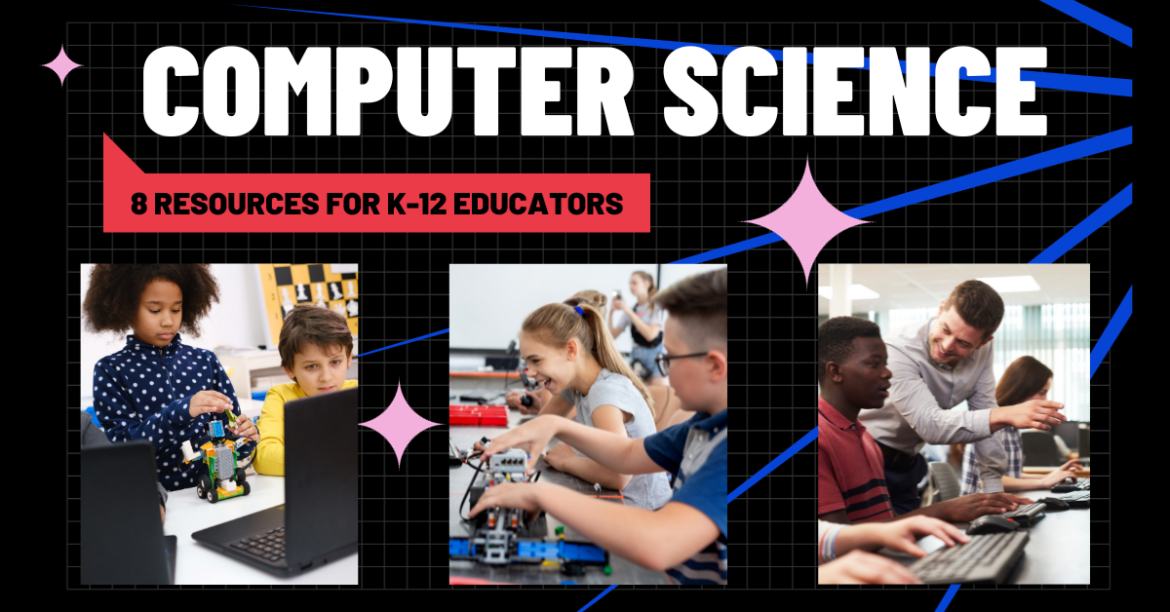December 4-10 is Computer Science Week! But what is computer science exactly? In the K-12 Computer Science Framework developed by the Association for Computer Machinery (ACM), Code.org, Computer Science Teachers Association (CSTA), Cyber Innovation Center (CIC), and National Math and Science Initiative (NMSI), computer science is defined as “The study of computers and algorithmic processes, including their principles, their hardware and software designs, their implementation, and their impact on society.” Within this definition, they’ve outlined core concepts and core practices of computer science:
Core Concepts
- Computing Systems
- Networks and the Internet
- Data and Analysis
- Algorithms and Programming
- Impacts of Computing
Core Practices
K–12 Computer Science Framework. (2016). Retrieved from http://www.k12cs.org.
- Fostering an inclusive computing culture
- Collaborating around computing
- Recognizing and defining computational problems
- Developing and using abstractions
- Creating computational artifacts
- Testing and refining computational artifacts
- Communicating about computing
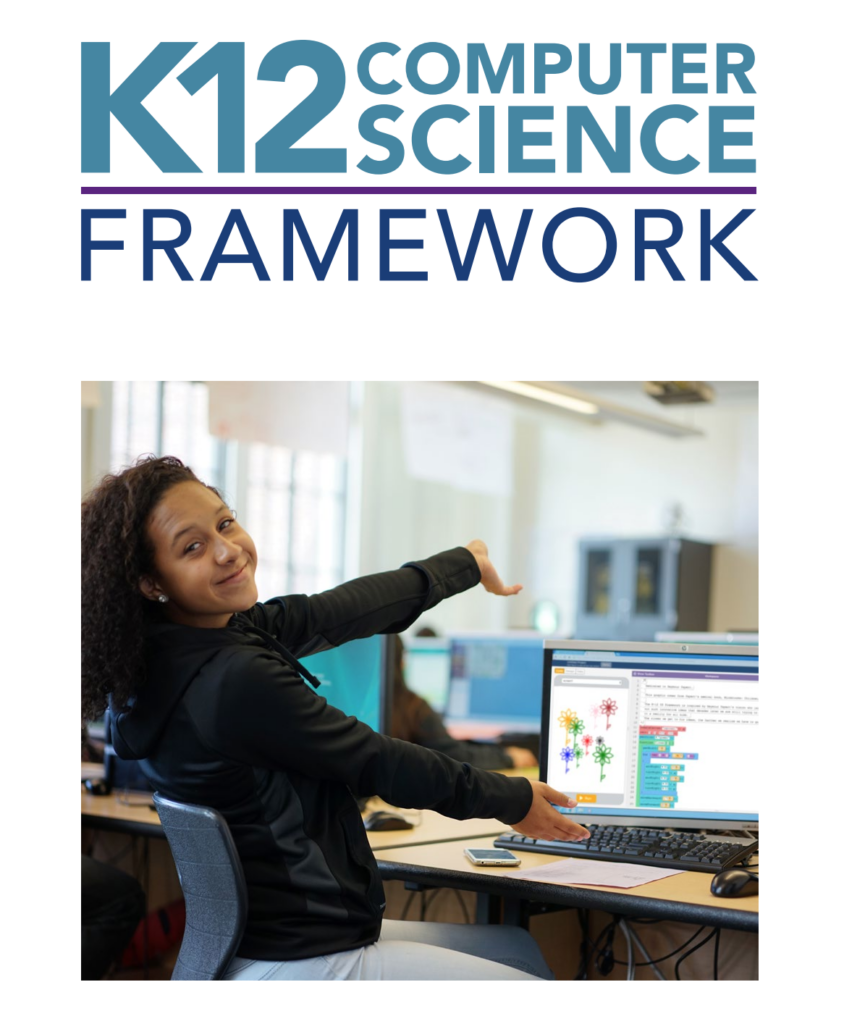
Careers in Computer Science
According to K12cs.org, “Computer science has driven innovation in every field and is powering approaches to many of our world’s toughest challenges.” That said, it is more important now than ever before to equip our students to be innovators and pioneers in the field of computer science. The US Bureau of Labor Statistics certainly backs this up by showing the annual pay for jobs in computer and information technology occupations to be much higher than the national average with a median yearly salary of $100,530 (May 2022). Additionally, through the year 2031, this occupation is projected to grow much faster than all other occupations at a rate of 13% compared to the average of 5.3%.
Why is computer science important?
Clearly, computer science is in our students’ futures. Learning.com proposes five reasons computer science education is important:
- Building a computer science pipeline: Preparing students in computer science will help fill a deficit caused by vacant positions in the field.
- Increasing students’ future career readiness: Student knowledge of computer science puts them at an advantage to be successful in the future workplace.
- Boosting equity in computer science: Minority groups and women are underrepresented. Providing all students with access to computer science education can help reverse this trend.
- Developing computer science skills: Building skills in this area provides students with knowledge that will support success in a number of domains outside of computer science.
- Cultivating adaptability: Computer science skills help students learn to grow as technology advances. So they are able to “re-skill and upskill to keep up with change.”
Let’s take a look at several resources that can equip us with information, curricular support, activities, and more.
Resources for Educators
1. CSEdWeek Resources Guide from Microsoft
You can access Microsoft’s guide by submitting some information in a very short form. Once you’ve completed the form, you’ll be given a link to access the guide. There, you’ll find information for Computer Science Week including teacher events and resources, student classes and events, and Hour of Code activities. Some of these will be useful throughout the school year!
2. Hour of Code Activities
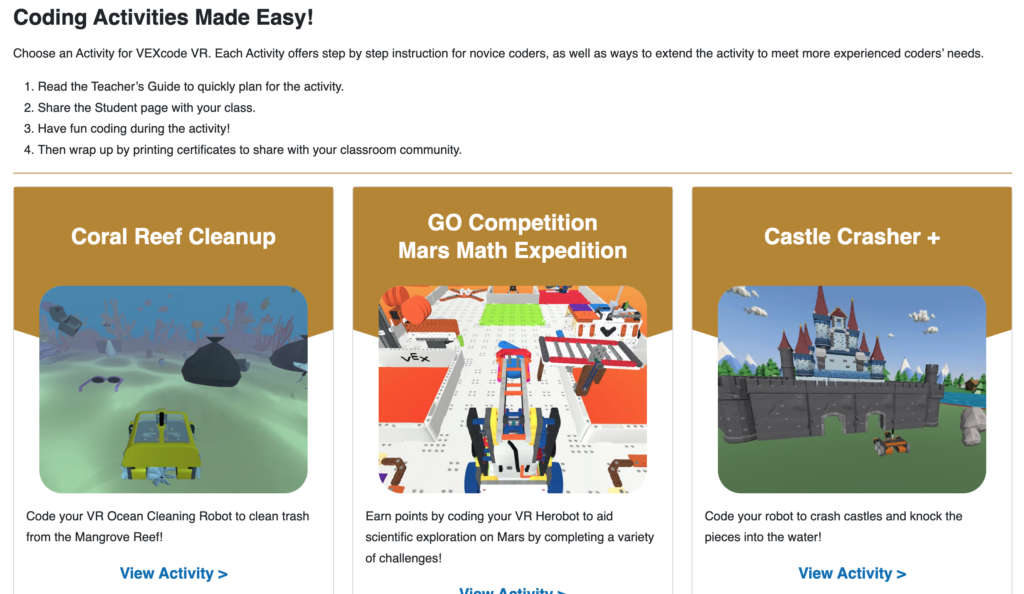
On their site, Hour of Code has many self-led tutorials and lesson plan activities for students in preschool through grade 12. These activities span topics like AI, Python, Scratch, robotics, and more. Highly recommend! Check out eight activities for VEXcode VR on topics like cleaning up the coral reef and collecting minerals with a rover. Each activity provides teacher facilitation information, student handouts, and certificates. You’ll find these activities to be appropriate for beginners, but extension activities are provided for more experienced coders.
3. Nasa Computer Science Resources
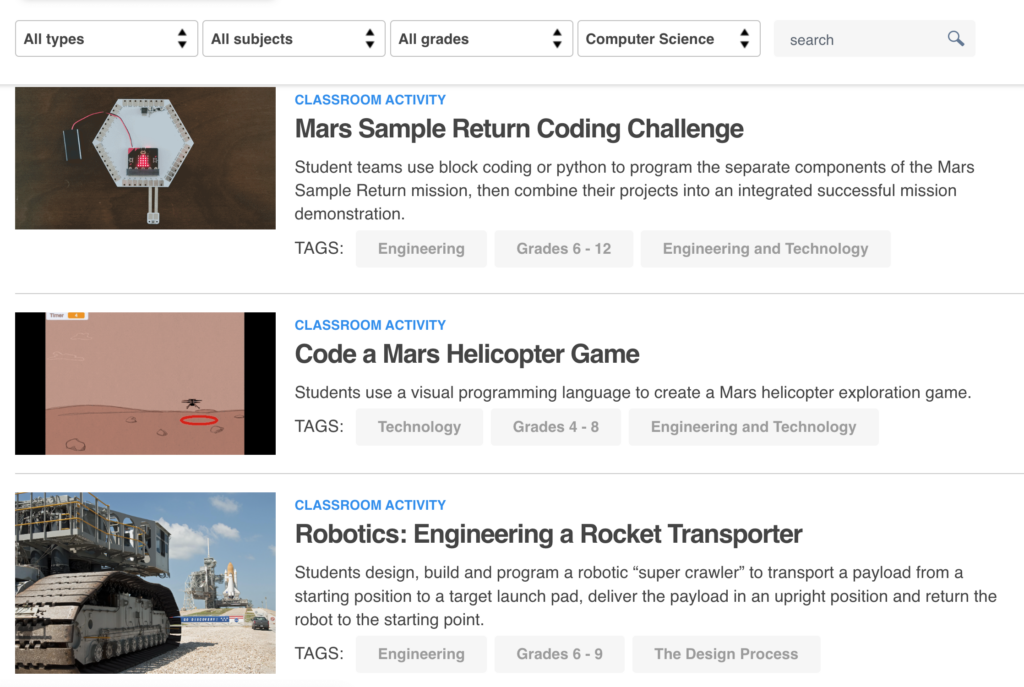
Here are several Computer Science Week resources from the NASA Jet Propulsion Laboratory at California Institute of Technology. These can be used anytime! You’ll find three coding projects for students as well as educator resources for grades 3-12. In addition to these, there are eight classroom activities to explore among other technology topics.
4. Computer Science Week Events and Resources
Every year, CSEdWeek offers online events you can join for free. This year, they’ll be offering two events:
- CSEdWeek Kickoff: Impacts of Computing | Monday, Dec. 4, 2023, at 6 p.m. Central
- Flip Event: Careers in Coding With NASA and Minecraft | Thursday, Dec. 7, 2023 at 1 p.m. EST
You can also host your own event like a class, school, or district Hour of Code. You can even find volunteers to come and speak to your students about computer science using these guiding questions. Check out the CSEdWeek website for more information and resources.
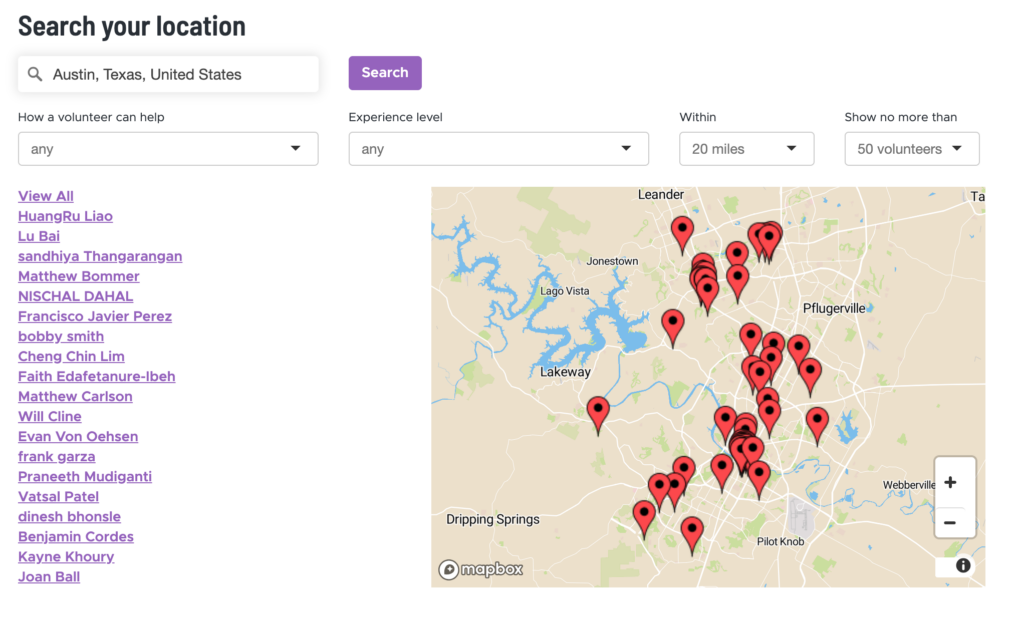
5. 2023 State of Computer Science Education
This is an interesting resource! Choose your state from the drop-down menu to view a PDF handout full of information. You’ll discover data on:
- The average number of computing jobs that open up each month in your state
- The average salary in your state for computer science-related jobs
- How your state compares when it comes to access to high school computer science courses
- How your state has advanced computer science in education through policy and funding initiatives
- Ways that computer science opportunities for students can be increased
- Statistics and data on high school computer science offerings and demographics
- Percentages of public high schools by state offering foundational computer science
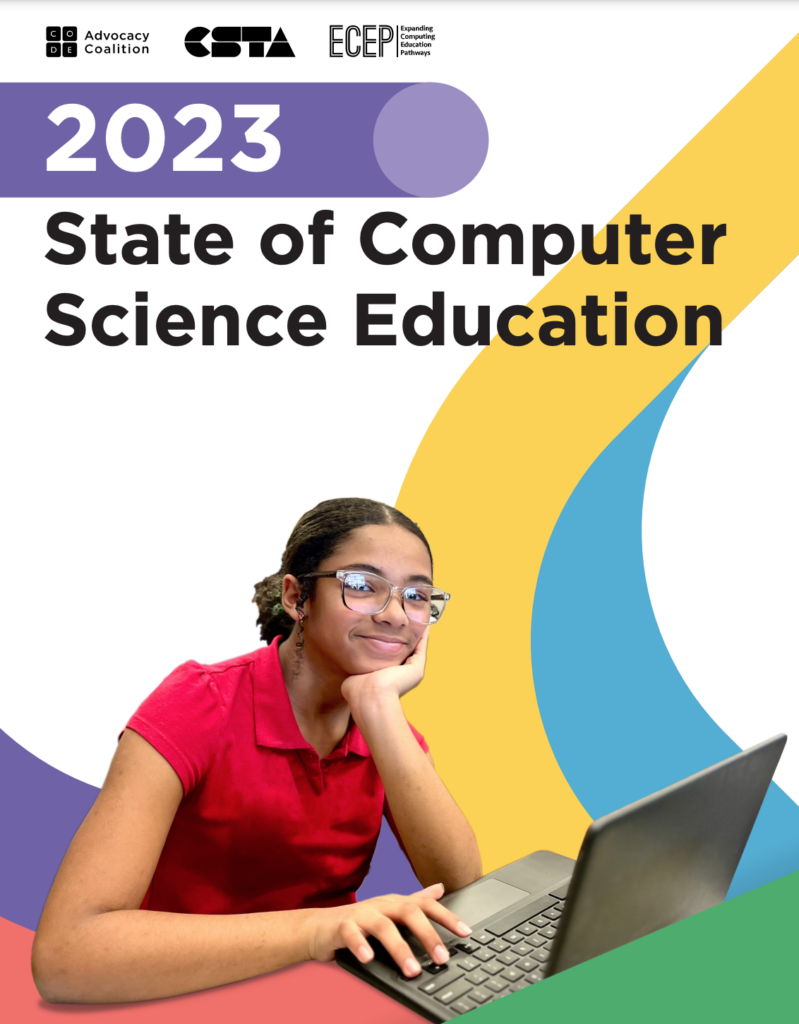
You can also click Download Report to view the annual State of Computer Science report produced by Code.org Advocacy Coalition, Computer Science Teacher Association, and the Expanding Computing Education Pathways Alliance (ECEP). This report provides insight into computer science education policy, national trends and progress, national access and participation, and more.
6. CS Unplugged
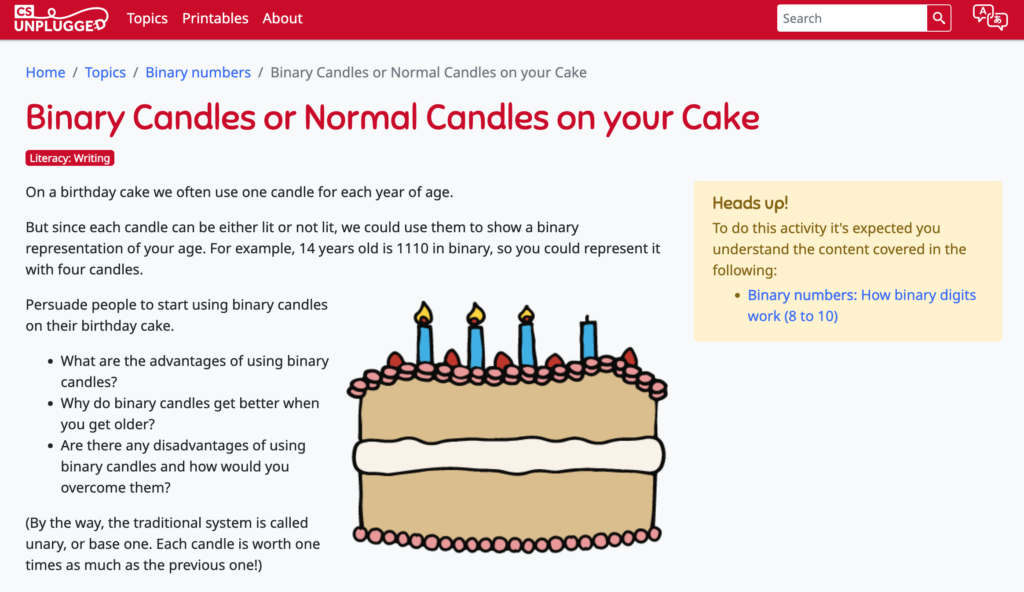
Here you’ll find a wealth of free activities that promote computer science. CS Unplugged provides free resources for educators, remote educators, and students that include printables, activities, curriculum integrations, online lessons and courses, and more. If you’re teaching computer science concepts, you’ll want to check this one out!
7. Raspberry Pi Foundation
The Raspberry Pi Foundation is based in the UK. It offers training, resources, and online events about computing to educators for free. One specific resource offered is a free computing curriculum to use with students aged 5-16. While this curriculum is based on the national curriculum in England, I personally believe it can be easily adapted and is a great resource to pull from when teaching computer science concepts and skills. The curriculum has four stages, complete with teacher guides, curriculum maps, unit guides, and learning graphs:
- Key stage 1 (ages 5-7) 12 units, 72 lessons
- Key stage 2 (ages 7-11), 24 units, 144 lessons
- Key stage 3 (ages 11-14), 19 units, 114 lessons
- Key stage 4 (ages 14-16), 22 units, 178 lessons
8. Scratch
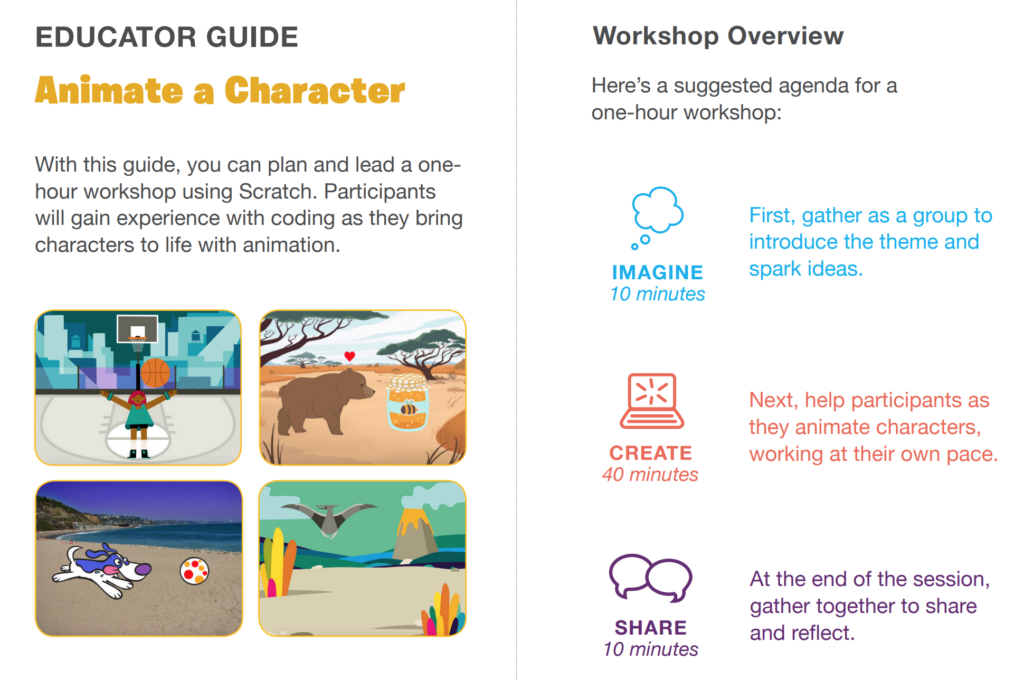
Scratch is a coding community that promotes computational thinking through the creation of stories, games, and animations. This site offers a rich array of resources for educators and students that are completely free and available in 70+ languages. Their educator guides give teachers a breakdown of Scratch activities, including a workshop overview, a checklist for preparation, a lesson plan, and suggestions for what to do next. Additionally, Scratch provides a Creative Computing Curriculum, developed by the Creative Computing Lab at the Harvard Graduate School of Education. This curriculum contains Google Slides units and activities that promote familiarity and fluency with computational thinking.
I hope you’ve found something on this list that will prove helpful for you as an educator and promote computer science in your classroom. Which one will you use? Are there others to add to the list? Let me know in the comments!
Additional Reading and Resources:
- Hacktivate: Cybersecurity for Grades 6 and Up
- Leveling Up with TA-TEKS: Computational Thinking, Coding, and Python
- TCEA Announces All-New Scratch Computational Thinking Course
- TCEA Announces All-New Swift Programming Course
- Free K-12 Cyber Workforce Curriculum
- How App Development Empowers Students
- Creating Chemical Models with Tinkercad and Sketchfab
- Justifications to Incorporate Coding into K–12 GT Programs
- Resources for the Raspberry Pi Enthusiast
- Free Computer Science Tools For The Classroom

